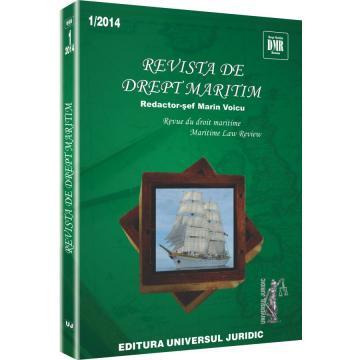
Convenţii adoptate de Organizaţia Maritimă Internaţională (OMI) şi ratificate de România până la 1 aprilie 2014
The maritime agreements adopted by International Maritime Organization and ratified in Romania until 1st April 2014
More...We kindly inform you that, as long as the subject affiliation of our 300.000+ articles is in progress, you might get unsufficient or no results on your third level or second level search. In this case, please broaden your search criteria.

The maritime agreements adopted by International Maritime Organization and ratified in Romania until 1st April 2014
More...
The maritime agreements of the International Maritime Organization (IMO) non ratified in Romania
More...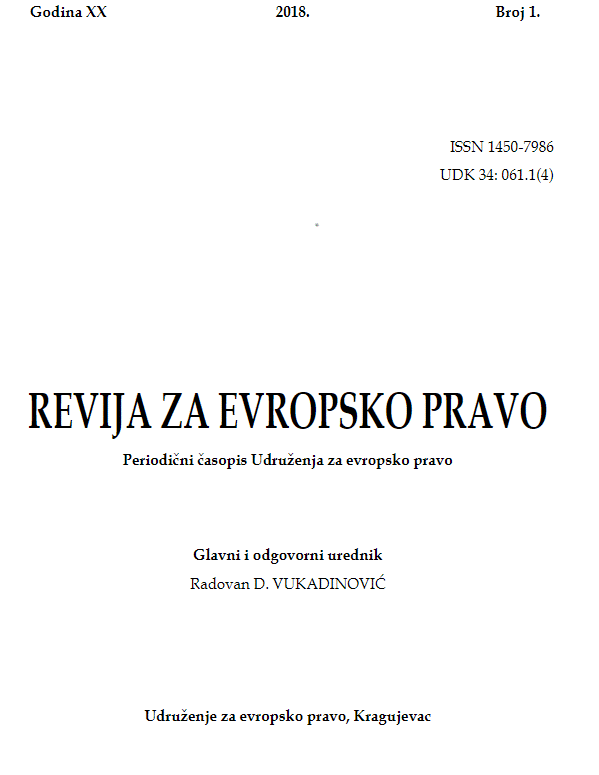
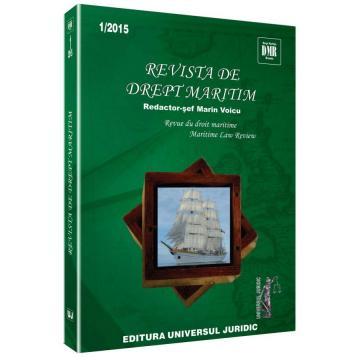
Frecvent, se afirmă despre cheltuielile generate de procesele de arbitraj, că ar fi mari: în acest studiu s-a ridicat problema comportamentului părţilor implicate în proces, care poate fi luat în considerare la sfârşitul procedurilor juridice, pentru a putea fi alocate costurile generate de arbitraj. De asemenea, dacă principala cerere sau cererea reconvenţională este respinsă, partea câştigătoare poate spera în mod rezonabil să recupereze costurile procedurilor de arbitraj juridic de la partea perdantă, ca urmare a principiului „costurile urmează evenimentul”. Totuşi, aceste două criterii nu au niciun beneficiu practic dacă părţii, care ar trebui să suporte costurile arbitrajului juridic – sau mare parte din ele –, îi lipsesc suficiente fonduri pentru a despăgubi partea câştigătoare, ori dacă încearcă să-şi însceneze propria insolvenţă, în acest fel periclitând şansele acesteia din urmă de a-şi recupera astfel de costuri.
More...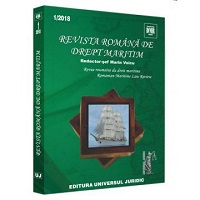
Portul şi nava au o lungă istorie comună, indisociabilă, evoluând împreună secole de-a rândul. Nava ca actor maritim şi portuar a constituit eşafodajul constituirii dreptului maritim internaţional, iar instalaţiile portuare sunt un vast domeniu conectat la problematicile maritime, care nu sunt integrate deplin în sfera dreptului internaţional maritim.
More...
The article describes the peculiarities of the state’s international legal responsibility for violating international obligations in accordance with the requirements and norms of international law. Along with this, the legal nature of offenses was analyzed and it was noted that the main shortcomings are that special attention is paid to the application of countermeasures to states from the position of international organizations and institutions regarding the subsidiary responsibility of member states. The concept of legal responsibility of states for internationally illegal acts was developed in antiquity, more precisely – in the 4th century BC. In modern international law, the application of the institution of international legal responsibility dates back to 1920, when the Charter of the League of Nations indicated the possibility of imposing sanctions against countries that violated their international legal obligations. But the issue of international legal responsibility was fully developed after the Second World War, when humanity realized the extent of the damage caused by the fascist states and theirs. In 1945, the issue of combating internationally illegal acts was reflected in the UN Charter (Chapter VII «Actions in relation to threats to peace, breaches of peace and acts of aggression»). Attempts to codify norms of international legal responsibility of states were made by legal scholars, non-governmental and intergovernmental organizations. However, none of them led to the emergence of a universal international convention at this time. The modern concept of international legal responsibility evolved from the responsibility of states for damages caused to foreign persons. Therefore, initially the codifiers paid the main attention to material liability for damage caused to the person and property of foreign citizens and foreign capital. Since the second half of the 20th century, the responsibility of states for aggression, war crimes, apartheid policy, and genocide began to be recognized. The nature of the applied measures of responsibility and the forms of its implementation are changing. Then there are changes in the circle of subjects – the responsibility of international organizations and individuals appears. With the expansion of technical and scientific capabilities, the absolute responsibility of states for damage caused as a result of legitimate activities appears. In 1956, the UN General Assembly referred to the International Law Commission the issue of codification of norms of international legal responsibility of states.
More...
The paper deals with the position of the spouse from same-sex marriage concluded in abroad in the case when bequest of a deceased same-sex spouse is discussed before the court in the Republic of Serbia and when domestic law is the applicable law for succession. Besides, it particularly analyzes the application of methodological instrument substitution in order to solve dilemma if the marital status, made by conclusion of valid same-sex marriage in abroad, could be "appreciated" in our country. For the purpose of resolving this complex problem, some hypothetical cases are created illustrating mentioned dilemmas and represent possible guidelines for decision of domestic courts.
More...
In this paper the author analyses the conflict of law regime for inter vivos contracts whose effects are postponed to the death of a contracting party disposing of the property in Serbian private international law de lege lata and de lege ferenda. Starting from the facts that the effects of these contracts are relevant for succession law and that Serbian private international law does not contain special conflict rules for them, the paper focuses on the problem of their qualification (characterisation) in Serbian private international law. On the other hand, Serbian Draft of Private International Law Act of 2014 introduces the special conflict rules for these contracts which are analysed in this paper too.
More...
In this paper, the author analyzes open issues regarding the status of humankind in International Law, pointing out particular problems related to its international legal personality, primarily from the angle of the Law of the Sea and the Cosmic Law. A special place in this paper is dedicated to international regulations in the field of the Law of the Sea and Cosmic Law in which there is no possibility of establishing sovereignty, where states, as basic subjects of International Law, do not have exclusive competencies. The idea of humankind as a subject of International Law is primarily viewed from the angle of particular areas of International Law in which states are not exclusive holders of rights and duties. Humankind is analyzed as a specific and, above all, abstract concept in International Law.
More...
This paper analyses the relation between the Hague Convention on the Civil Aspects of International Child Abduction from 1980 and 'the best interests of the child' as a fundamental principle of family law. Intention is to show the space that aforementioned Convention leaves for applying 'the best interests of the child' inside its own mechanism of application. Although it has been enacted almost decade earlier then Convention on the rights of the child, the Hague Convention recognised the need to protect 'the best interests of the child' in certain way. In that sense, the Hague Convention has established the legal assumption that it is in 'the best interests of the child' to be returned promptly in country of her/his habitual residence. Individualisation of 'the best interests of the child' is achieved through enumeration of exemptions from the duty of child's prompt return in the form of grounds for challenging the mentioned assumption. The authors show that national authorities that decide on the child's return interpret these exemptions mostly in a narrow and restrictive fashion to avoid the disintegration of the basic mechanism of the Hague Convention. However, since the time when the Hague Convention has been enacted, the strength of 'the best interests of the child' formidably increased so the space has been given to national authorities to interpret the exemptions more flexibly and widely which can jeopardize procedural goals of the Hague Convention.
More...
The long-standing debate about the level of coherence between the case law of the European Court of Human Rights and the Court of Justice of European Union with regard to interpretation and application of the European Convention on Human Rights significantly divided scholars and other professionals. In order to address one important segment of the given issue, this paper examines to what extent are case laws of two European courts consistent when it comes to the interpretation and application of the right to a fair trial, which is guaranteed by Article 6 of the European Convention on Human Rights.
More...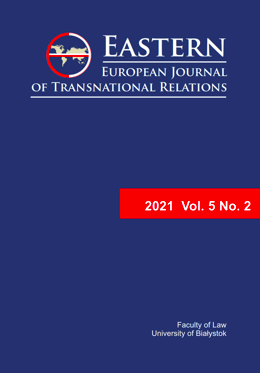
This paper tackles the notion of the essential security interest of a State as an exception enshrined in numerous treaties since the beginning of the 20th century. The purpose of the analysis is to establish whether the practice of international courts, tribunals, and other bodies competent to settle the disputes under international law has created any guidelines for interpretation of sometimes vague and discretionary terms used in the wording of essential security interest clauses included in different international treaties. The method is based on the exegetical analysis of jurisprudence of international courts, tribunals and dispute settlement bodies in cases concerning interpretation of essential security interest clauses. The protection of vital interests of the State, designed as an exception to treaty-based international obligations, has been well established in treaty practice. The wordings of particular essential security interest clauses differ depending on the objects and purposes of the particular treaties, but the core stipulations of the essential security interest clauses remain very similar. The analysis of the judgments, awards and decisions allows to formulate some general conclusions as to the application of essential security interest clauses. Measures allowed under essential security interest exception must be intended to protect ‘essential security interests’ of the invoking State. Although States remain discretion to define their essential security interests, it must be done in good faith, consistent with the ordinary meaning of the stipulation and treaties’ object and purpose.
More...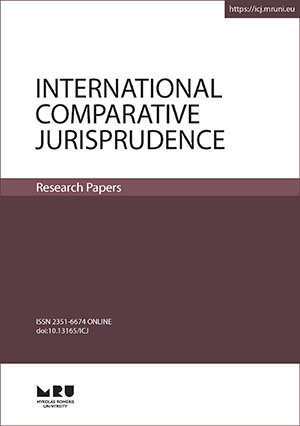
The duty of disclosure is a fundamental precondition of fair arbitration proceedings. Though the importance of this duty in investment arbitration is obvious, its content and application pose various questions which require complex analysis. The lack of common binding sources of the duty of disclosure leads to practical difficulties and may curb the effectiveness of arbitration proceedings and lead to successful challenges of arbitral decisions. The question arises as to which relevant information and circumstances arbitrators shall disclose to the parties and how. This research aims to reveal the standards for arbitrators to reveal information which may be relevant for ensuring the fairness of arbitration proceedings and how this duty should be exercised. The authors analyze the relevant rules on the duty of disclosure in the rules of arbitration and case law. Special attention is drawn to the protection of the right to a fair trial. The authors find that though there are no generally accepted standards of the exercise of the duty of disclosure in investment arbitration proceedings, arbitrators shall reveal to the parties all information which may be relevant to assess their impartiality. Furthermore, the exercise of this duty is continuous during arbitration proceedings. The latest development of the case law of the European Court on Human Rights in the Beg S.p.a. v. Italy case reveals the practical problems of the application of Article 6 of the European Convention on Human Rights in arbitration proceedings, and also highlights the importance of the proper exercise of the duty of disclosure in arbitration proceedings.
More...
This article addresses the procedure of the automated seizure of a debtor’s funds in Ukraine in the process of enforcement of judgements of all categories. Similar mechanisms provided for in European countries are also studied for the sake of comparison and with a view to using the best international practices to improve Ukrainian law. One of the core drawbacks of the existing mechanism is considered to be the lack of a consolidated register of individuals’ bank accounts. This hinders the effective detection of the debtor’s account and may lead to the duplication of funds seizure whenever a person holds two or more accounts in different financial institutions. The legal framework for the procedure is aimed at striking a balance between the interests of the creditors and the debtor. In this vein, there are several ways to safeguard the debtor from disproportionate burden. According to existing rules, some of categories of income cannot be seized. However, it might be more effective to set a minimum amount of funds that must be safe from seizure. The other flaw in the operation of the system is the lack of instant communication between enforcement officers and banking institutions.
More...
Letter of Credit (L/C) is a very popular payment method in international trade. The issuing bank has the obligation to make payment if the document stipulated in a Letter of Credit are presented. Under the strict compliance principle, any discrepancy in the documents may be the reason for refusing payment. There are two different approaches to the interpretation of the principle of strict compliance: literal compliance and substantial compliance. In literal compliance, a slightest inaccuracy may be the reason for refusing payment, which is not the case in substantive interpretation. The author provides an overview of these two approaches, with specific reference to relevant case law and relevant provisions of the UCP Rules and ISBP Rules governing this international trade matter. These international rules and diverse case law offer opportunities for a more flexible and balanced approach to the interpretation of strict compliance.
More...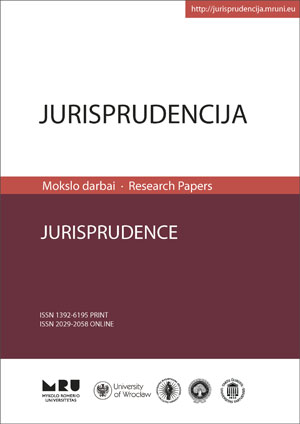
Mykolas Römeris wrote about various legal issues in his diaries. He also wrote about cases that were examined at the Permanent Court of International Justice in The Hague, where the prominent Lithuanian lawyer served as an ad hoc judge (or national Lithuanian judge). He wrote about the case of the interpretation of the Statute of the Memel Territory, to which he devoted numerous pages in volume 34 of his diaries. Naturally, he also wrote about the case of the Panevėžys–Saldutiškis railway, to which this article is dedicated. While describing the Panevėžys–Saldutiškis case in his diaries, Römeris: looked into issues of international law and the process of hearing cases at the Permanent Court of International Justice; analyzed the ad hoc role of the judge and not only the legal, but also the political and psychological reasons for making decisions; described in detail the judges’ discussions, considering one or another issue, the origin of the case, the legal intricacies of the case, the Lithuanian delegation, the preparation of Lithuania’s defense strategy, and preparation for the judicial process; and presented his opinion regarding the preliminary objections presented by Lithuania. The structure of this article was determined by the progress and stages of the trial process. The scientific foundation of this research consists of the material of two funds stored in the Wróblewski Library of the Lithuanian Academy of Sciences, Vilnius University Library. The historical, comparative, analytical, descriptive, linguistic, and document analysis methods were used in the research.
More...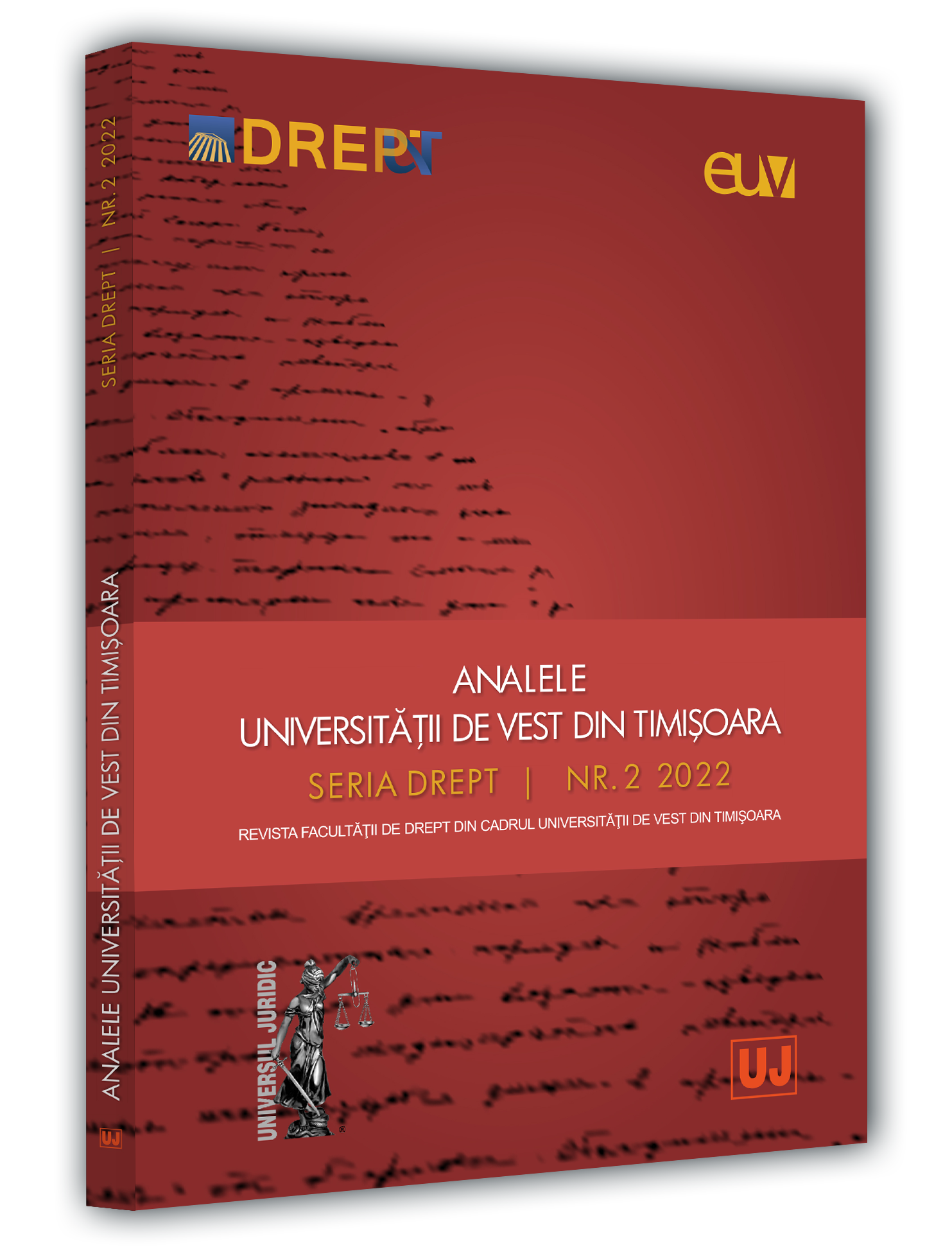
The first regulation on tobacco plain packaging was adopted in Australia, in 2011, with the aim of making cigarette boxes unappealing, thus reducing the prevalence and uptake of smoking in the overriding interest that is public health. Tobacco companies strongly opposed the measure, considering it as an unacceptable de facto expropriation of their (intellectual) properties, namely their powerful brands. They brought actions in court against the state, but their claims were rejected by judges, based on the superior public interest pursued by the restrictive regulations. The history repeats itself each time another state adopts similar provisions on similar grounds, like in a domino game, each run of a tile reinforcing the arguments of the previous one.
More...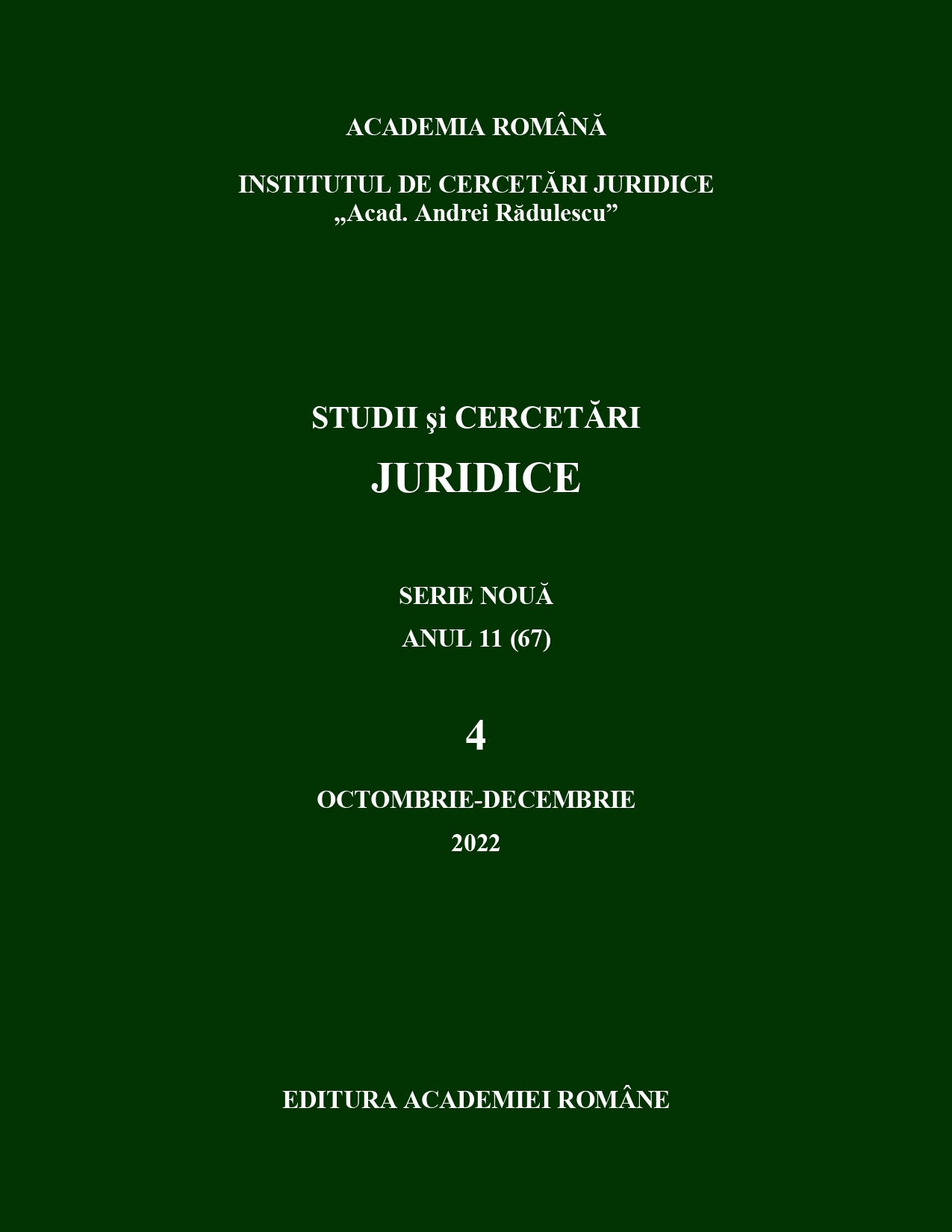
Three decades after its conclusion (Rio, 1992) and 28 years after its entry into force (1994), the United Nations Framework Convention on Climate Change (UNFCCC) has managed to make a decisive contribution to the establishment of the global climate regime. In application of its provisions, the international process of cooperation and negotiation aimed at the global mitigation of anthropogenic climate warming and adaptation to the effects of climate change, with a dynamizing role in an international, regional, and national context, was launched and is ongoing. The framework convention, through the conference of the parties and in the achievement of the established final objective, was followed by a significant normative evolution with the major steps being the adoption of the Kyoto Protocol (1997) and the Paris Agreement (2015), which is now in the phase of implementation, thus reaching the affirmation of international climate law, with a consistent component of EU law. The principles it proclaims (starting with the dominant one of common but differentiated responsibilities of the states in the matter), related obligations (common, specific to industrialized countries, and specific to developing countries), the financing mechanism and the permanence of updating and adaptation actions of global action on climate change gives it its role as a permanent and dynamic international framework for debate and response to the current climate crisis. In close connection with two other major framework conventions – the one on biodiversity (1992) and, respectively, that of desertification (1994) – it represents a major landmark in the development of contemporary international environmental law.
More...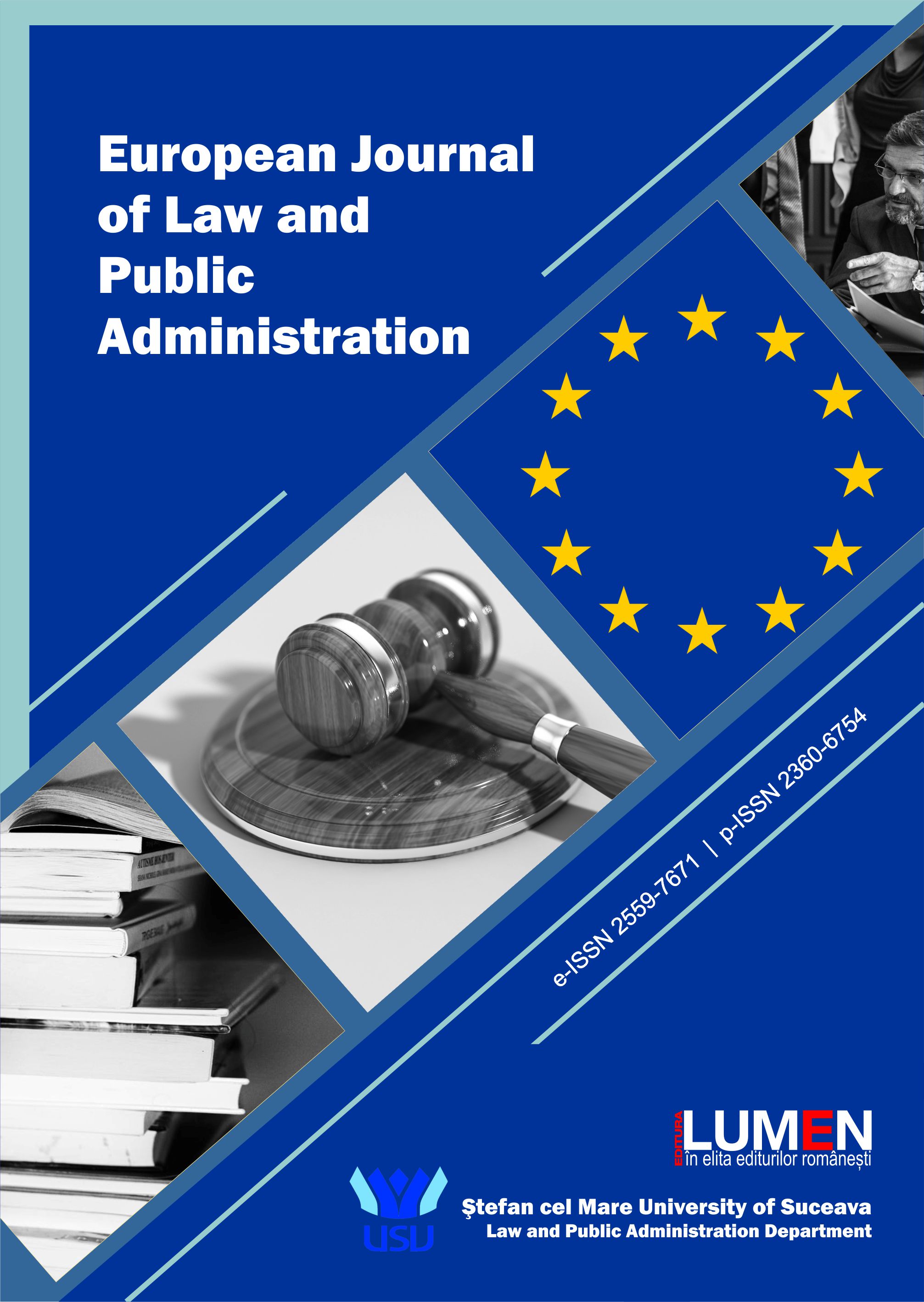
This article envisions the evolution of citizenship in the way in which premodernity, modernity and postmodernity have marked this complex reconfiguration process. Thus, starting from pinpointing which are the most eloquent ideas which these three periods of time underline, this paper aims at making a correlation of the resulting aspects with the idea of citizenship, emphasizing this way the theoretical evolution of the concept, exactly as it was highlighted by the salient elements of each of the approached segments of time. Intrinsically, premodernity is exponentially represented by the impact of both mythical precepts and religion, fact that changed with the advent of modernity, which switched directions and proposed reason as being fundamental to answering to the questions raised by the individual, reaching in the end postmodernity, which delimitates itself by the previously mentioned segments and promotes diversity, inclusion. Consequently, the paper tries to underline the notion of citizenship as it is seen from an evolutionary perspective, the concept being approached by constantly rallying it to the features which characterized premodernity, modernity and postmodernity, thus particularizing sui generis varieties of citizenship.
More...